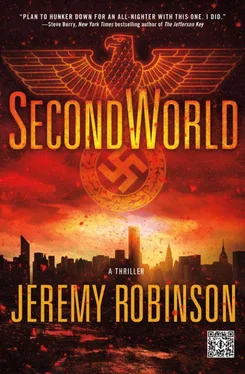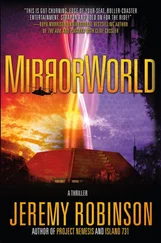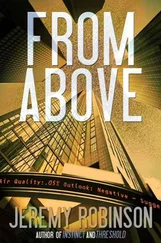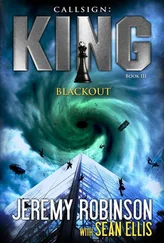Jeremy Robinson
SECONDWORLD
For the real Roger Brodeur. I apologize in advance.
I’ve written acknowledgments so many times now, that I’m starting to run out of new ways to say thank you to the people who have helped, encouraged, and stood by me. So I’ve decided to write my acknowledgments in Klingon.
cha’DIch qo’ ’oH naDev. ’uch lIj tlhuH!
Okay, that’s probably a bad idea. I should probably just thank everyone.
First is my publishing team. Thanks to Scott Miller at Trident Media Group for being a supreme agent. At Thomas Dunne Books I have to thank my editor, Peter Wolverton, who has taught me so much about writing fast-paced thrillers, and Anne Bensson, who is always available to help me. I also have to thank Rafal Gibek and the production team, for copy-edits that make me look like a better writer than I am.
For help developing the crazy, but plausible, science at the core of the SecondWorld story, I must thank “Chemisttree” from physicsforums.com, where I received ideas and advice from a number of scientists in a variety of fields.
For advance reading I have to thank Roger Brodeur, whose fate lies within these pages. I also have to thank Kane Gilmour, Stan Tremblay, Walter Elly, and Christopher Ouellette for listening to my crazy ideas and helping to make them crazier.
As always, I must thank the people who make all aspects of my life more fun, creative, and unpredictable, Norah, Solomon, and Aquila, my children. And thanks to my wife, whose unwavering belief that I could chase and catch my dreams allowed me to do so. Love you guys.
LUDWIGSDORF, GERMANY
MAY 1, 1945
“I’ve never seen a person melt before,” Dr. Kurt Debus said, twisting his skinny fingers together as though tying a knot.
“A person ?” The deep voice oozed disdain.
Debus flinched in surprise and turned around. He had no idea how the two-hundred-pound four-star general and his polished boots, which normally announced his presence with the subtlety of a Clydesdale, had snuck up on him. He glanced at his counterpart, Dr. Walther Gerlach, and saw trepidation in his blue eyes. Fear threatened to crush Debus’s heart, but he quickly reigned control of his emotions and responded, “I was simply speaking in physiological terms, Obergruppenführer. They are only Jews, after all.”
SS Obergruppenführer Emil Mazuw raised a skeptical eyebrow high on his broad, flat forehead. As one of the highest ranking and most honored officers in the SS he commanded a level of fear and respect that only Himmler and Der Führer himself exceeded. And as the appointed head of the research project, he wielded that power without mercy. The FEP ( Forschungen, Entwicklungen, Patente, translated Research, Development, and Patents) expected nothing less. Results were needed immediately if the tide of the war was to be reversed.
When discomfort crept back into Debus’s expression Mazuw grinned and placed a hand on the frail-looking scientist’s shoulder. With a chuckle he said, “You have nothing to fear, Doctor. Had I thought you a sympathizer we wouldn’t be talking, would we?”
Debus looked to the ground, unable to meet Mazuw’s piercing eyes, which were surrounded by the scar-covered flesh of a man who didn’t fear violence. “No, Obergruppenführer, we would not.”
Mazuw turned toward Gerlach, who had made himself busy by straightening his bow tie. “Are we on schedule?”
Gerlach gave a nod as a stiff breeze snuck up behind him and tossed his white hair. He smoothed it quickly and said, “Yes, sir. We will begin in ten minutes.” He glanced beyond Mazuw for a moment, distracted by the sight of so many people. Their entire science team was present—sixty-two men—which wasn’t uncommon during tests, but the hundred Schutzstaffel soldiers behind them, armed with Sturmgewehr 44 assault rifles, unsettled him.
Mazuw noted Gerlach’s distraction and looked over his shoulder. The line of soldiers straightened under his gaze.
“If you don’t mind me asking,” Gerlach said, but never had a chance to finish his sentence.
Mazuw anticipated the question and answered, “After today’s successful test, the device will be dismantled and moved by Obergruppenführer Kammler.”
“Moved?” Debus asked. “Where?”
Mazuw ignored him, turning back to Gerlach. “Ten minutes.” He walked away, his feet clomping over the concrete ramp. The wind picked up again as he left, but the man’s gray cap and stiff pressed officer’s tunic seemed impervious to its effect.
Gerlach, however, was not. His body shook with a chill. He wrapped his arms around his chest. “I knew what you meant,” he said to Debus. “About the persons.”
“Will they really melt?” Debus asked. “Is such a thing possible?”
Gerlach ran a hand through his hair, which had begun falling out after being too close to the device during the first test. He had suffered no other ill effects, but the resulting widow’s peak left him self-conscious. “I cannot explain it. It is better if you see it for yourself.”
“You can’t explain it?”
“I do not wish to.” Gerlach let out a long, slow breath. “Come, they are almost ready.” He walked to the side wall of the observation platform. They were a half mile away from the sight atop a two-hundred-foot hill that offered spectacular views of the test site and the large factory just beyond it. The factory produced bullets—or so the world thought. In truth, it served as laboratories and a fabrication area for the Third Reich’s most classified project. The thick walls, coated with ceramic, provided protection from the effects of the project’s outdoor tests, but because today’s test would be at full power and involve a radical new phase against which ceramic could not shield, they evacuated the faux factory.
Debus raised a pair of binoculars to his eyes, looking down at the test site. “They’re nearly finished.”
Gerlach’s keen eyes didn’t require the binoculars to make out what was happening. The last two of fifty Jews were being secured to a wooden post in the outer test circle. There were three concentric rings of posts. The first stood only fifteen feet from the test site’s epicenter. The second was fifty feet away—the known limit of the powerful field that would be generated. The third ring stood one hundred feet away, well within the usual safety zone. But today’s test, if all went well, would expand the lethality of the bell-shaped device Gerlach had dubbed the Beehive, a name that referred to the buzzing sound it made when activated.
The heavy clomping that marked the return of Mazuw tensed both men. Gerlach leaned in close to Debus. “That man will soon cause us both to lose our hair.”
They shared a smile, which vanished when Mazuw spoke. “The bomber is en route. ETA three minutes. Are you ready?”
The question was asked in such a way that sounded more like “You better be ready.” Gerlach looked through his binoculars, inspecting the site more closely. He could see the last of the support staff quickly vacating the area. No one liked being near the Beehive, especially when it was powered and ready to launch. He scanned over the rings of wooden posts. Each post held two Jews, strung up by their wrists. None of them struggled against their restraints. They’d long since become resigned to their fate, though Gerlach knew that fate would be far worse than any of them could imagine.
Still, he had no sympathy for them. Not only were they Jews, and thus subhuman, but he had also carried out similar experiments numerous times before. After the first successful test of the device, the one that had caused the recession of his hairline, he had vomited violently. He had never seen a man killed before, and he couldn’t think of a worse way to die. In the past year, hundreds of men, women, and children had lost their lives in a similar fashion. The fifty down below meant little to a conscience that no longer existed.
Читать дальше












